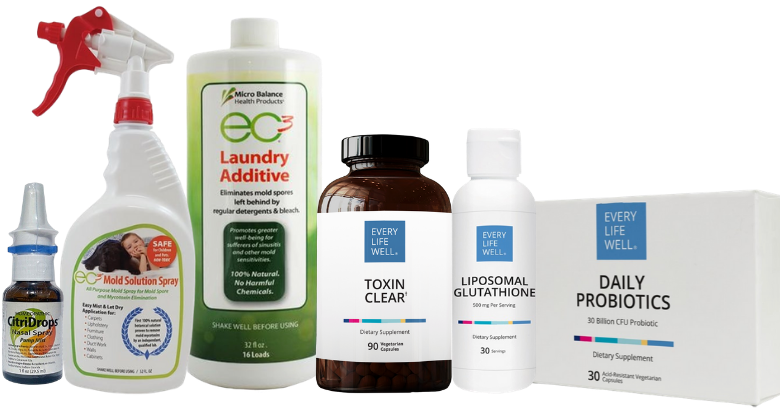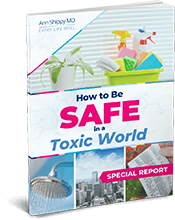10 Supplements for Heart Health and Covid Recovery Support
Heart disease continues to be the number one cause of death and affects approximately one-third of adults across the globe.
With the spread of Covid-19, we are seeing even more inflammation and injury to the cardiovascular system triggered by the virus, with slow recovery time for those facing long-Covid.
Luckily, in addition to a comprehensive Functional Medicine plan that includes diet and lifestyle change, many supplements offer high-level, targeted support to support the vascular system.
This article will dive into some of these options so you can discuss them with your provider.
Keep reading to learn more about:
- Cardiovascular disease
- Covid’s impact on the heart
- Details ten supplements useful for both cardiovascular and Covid19 recovery support
What Is Cardiovascular Disease?
Cardiovascular disease, commonly referred to as heart disease, includes many conditions and complications that affect the heart and the blood flow through the vascular system.
These include:
- Atherosclerosis – inflammation and plaque formation in arteries
- Coronary heart disease – affects the blood vessels of the heart
- Myocardial infarction – Heart attack
- Stroke – blood vessel injury in the brain
- Pulmonary embolism – blood clots that move from veins to the lungs
- Heart failure – the heart no longer pumps blood efficiently
There can be many factors that contribute to heart disease, many of which are lifestyle related. Heart disease often develops over years and decades of poor lifestyle habits such as:
- Excessive alcohol consumption
- Tobacco use
- Standard American diet, high in refined carbohydrates and inflammatory vegetable oils
- Sedentary behavior
Heart disease can be caused by metabolic disease with similar root causes of inflammation and insulin resistance as diabetes. In fact, a leading complication of diabetes is heart disease.
Once thought of as primarily a disease of old age, we now see heart disease in younger people. Recent data suggests that about a third of adults in their 30s have signs of heart disease, such as plaque formation.
Heart Damage and Covid19
We know that the body has an incredible ability to regenerate. Like those that line the gut, some cells turn over quickly, but others, like brain cells, are slower to grow and repair.
It’s a common perception that heart damage, after a heart attack, for example, is permanent. But we now have evidence that we may be able to support the regeneration of these cells too.
And most certainly, we see heart and physical function improve in patients who participate in cardiac rehabilitation after a cardiac event or surgery.
This power of cells to regenerate is good news for Covid19 recovery too.
A damaged cardiovascular system from Covid19 looks like an increased risk of blood clots, inflammation in the vascular system, and inflammation in the heart itself.
A larger problem, potentially, is the damage to the heart caused by Covid itself. Tissue damage and inflammation is something we see post-covid in those with PASC (post-acute sequelae of covid-19) also known as long-haul symptoms and is challenging to recover from.
Learn more about Post-Covid Syndrome and action steps to take here.
Many people recovering from Covid may need additional support for heart healing.
10 Supplements for Heart Health and Covid Recovery Support
In addition to other Functional Medicine interventions for Covid, post-Covid, or heart disease, here are some supplements to consider.
Many of these nutrients benefit the immune system and help decrease inflammation. Consider working with a Functional Medicine provider for a personalized protocol.
1. Vitamin D – We typically think of vitamin D as important for bone health, immune health, and even gene expression (epigenetics), but vitamin D has an even further reach. Vitamin D is necessary for cellular repair, including repair in the heart and blood vessels.
This mechanism suggests that while we know vitamin D is helpful for the prevention of Covid, it is never too late to optimize vitamin D levels. Doing so may help with the recovery of the cardiovascular system.
Please learn more about vitamin D and Covid-19 here.
Recommendation: Vitamin D3 5000 IU per day in the absence of blood levels; and adjust the dose to what’s required to maintain an optimal serum vitamin D for you.
2. Vitamin K – Like vitamin D, vitamin K is another fat-soluble nutrient that we might not think about in heart health at first but does play a significant role.
There are two forms of vitamin K – Vitamin K1 and vitamin K2. Vitamin K1 plays a key role in blood clotting and vitamin-K-dependent proteins in the body. Vitamin K2 is involved in calcium metabolism and directing calcium to the bones. Newer evidence suggests that vitamin K2 helps prevent heart disease by reducing the deposits of calcification in arteries.
Vitamin D and vitamin K2 are often combined in supplements for the benefits of both.
3. Coenzyme Q10 – CoQ10 is well known for its cardiovascular benefits and, interestingly has a structure similar to vitamin K. It’s an antioxidant associated with cell membranes and mitochondria. The highest concentration of CoQ10 in the body is in the heart.
CoQ10 may be a helpful supplement for cardiovascular and metabolic disease, including heart failure, high blood pressure, metabolic syndrome, type 2 diabetes, and more. It’s also a supplement well recognized for its metabolic and immune benefits during Covid and post-Covid recovery.
You may need a dose of 200 mg per day or higher to target the healing of cardiac cells. There are many options when it comes to CoQ10 supplements; here are some:
4. Vitamin C – Vitamin C is a common and inexpensive supplement with many benefits including immune resilience, adrenal function, epigenetic expression, and cardiovascular health. Vitamin C is an essential ingredient in the formation of collagen protein that builds and repairs the connective tissues in and around organs, including the heart.
Supplementing with collagen protein powder (and obtaining more collagen-rich foods like bone broth through the diet) is one strategy to help tissue recovery. In addition to vitamin C-rich foods, a more therapeutic dose of vitamin C (1000 to 3000 mg per day) is only obtainable through supplements. Vitamin C with bioflavonoids is one option as they work synergistically together. Another option is liposomal vitamin C because of its greater absorption rate.
5. Magnesium – Magnesium is vital for overall health and plays an important role in cardiovascular function. Low magnesium levels often correlate with cardiometabolic disease and inflammation.
Magnesium supplementation is a simple part of a treatment plan to help restore function, especially since magnesium deficiency is widespread. Magnesium also activates vitamin D, for the benefits discussed above.
Magnesium glycinate is a good choice for heart, immune, and metabolic support. Dosages range from 200-300 mg per day up to 600 mg or greater depending on an individual’s need and tolerance.
6. Omega-3s – Omega-3s, especially EPA from cold-water fish, are essential for cell membrane structure and cellular communication. They also play a role in reducing inflammation in the body. Like many other nutrients, omega-3 fats have far-reaching benefits: digestive health, bone health, and immune health, to name a few.
Most of us would benefit from eating more omega-3 sources such as wild salmon and taking a daily supplement, while reducing or eliminating inflammatory vegetable oils (think: corn oil, soybean oil, canola oil) from the diet.
A maintenance dose of omega-3 fats is about 1000 mg per day, although you may go higher for therapeutic benefit. Work with your doctor to optimize your dosage.
7. Astaxanthin – Speaking of salmon, astaxanthin is the carotenoid compound from algae that gives salmon its pink color. Known as a potent antioxidant and anti-inflammatory compound, it may be supportive in recovering from disease and inflammation in the heart. Post-covid inflammation in the cardiovascular system and lungs may also responsive to astaxanthin.
Therapeutic doses of astaxanthin are considered as high as 12 mg per day.
8. Resveratrol – Another phytonutrient, resveratrol, is responsible for the red color in grape skins and wine. Often Functional Medicine doctors consider resveratrol supplementation for cardiovascular disease prevention and treatment.
Recent evidence suggests that it may also help prevent or control the ongoing symptoms and cardiovascular complications related to Covid.
Resveratrol is often combined with other plant compounds, namely antioxidants, for synergistic effects. Options include:
- Resveratrol + Quercetin – Quercetin is another Covid support nutrient that helps to enhance the immune system and maintain mucosal barriers.
- MitoFuel – A comprehensive formula containing vitamins, minerals, and plant compounds, including resveratrol for overall mitochondrial health and supports the energy systems required for the heart to function well.
9. Curcumin – Curcumin, the yellow-orange pigment found in turmeric, is one of the most anti-inflammatory supplements available. Both cardiovascular disease and Covid complications are characterized by an increase in inflammation in the body; curcumin helps to reduce inflammation.
Liposomal curcumin is a supplemental form with increased absorption rates, allowing for increased benefits at lower doses.
10. Rhamnan sulfate – Rhamnan sulfate is derived from a specific type of seaweed and is known to regenerate the thin lining of blood vessels called the endothelial glycocalyx. As a supplement, rhamnan sulfate decreases inflammation in the blood vessels, protecting from atherosclerosis. In addition, it may be antiviral and help safeguard against Covid infection and severe disease.
As a supplement, Rhamnan sulfate is available in a formula called Arterosil, which combines this seaweed extract with other natural extracts from plants to promote heart health.
As you can see, there are many supplement options to help the body repair, heal, and recover from cardiovascular damage, whether from Covid or other root causes.
And there are even more options than mentioned here. Functional Medicine provides personalized healing protocols for each patient’s unique needs.
Nutrients, and plant compounds typically have many effects on the body, and may not only help to heal immediate cardiovascular concerns but restore balance and reduce inflammation throughout the body.
References
- https://www.who.int/en/news-room/fact-sheets/detail/cardiovascular-diseases-(cvds)
- https://www.ncbi.nlm.nih.gov/pmc/articles/PMC8477892/
- https://www.sciencedaily.com/releases/2017/06/170605121301.htm
- https://www.ncbi.nlm.nih.gov/pmc/articles/PMC5788997/
- https://www.ifm.org/news-insights/the-functional-medicine-approach-to-covid-19-virus-specific-nutraceutical-and-botanical-agents/
- https://www.ncbi.nlm.nih.gov/pmc/articles/PMC5494092/
- https://pubmed.ncbi.nlm.nih.gov/27012265/
- https://www.ncbi.nlm.nih.gov/pmc/articles/PMC6131403/
- https://pubmed.ncbi.nlm.nih.gov/27529239/
- https://pubmed.ncbi.nlm.nih.gov/32977544/
- https://www.ncbi.nlm.nih.gov/pmc/articles/PMC8421583/
- https://www.ncbi.nlm.nih.gov/pmc/articles/PMC8151233/
- https://www.ncbi.nlm.nih.gov/pmc/articles/PMC8707894/
- https://pubmed.ncbi.nlm.nih.gov/30796650/














